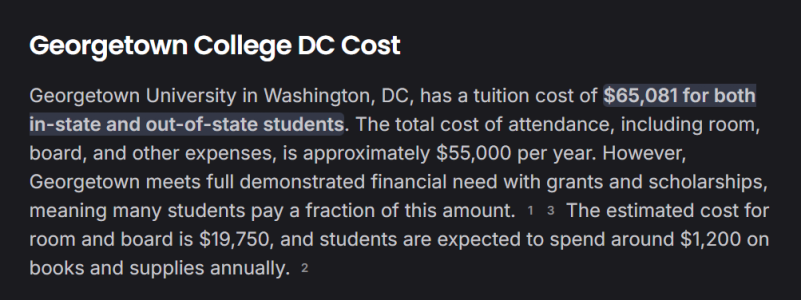The article is paywalled, so I couldn't read it.
Maybe I could get USAID to pay for it?
Democrats are in an uproar over President Donald Trump’s plan to abolish the U.S. Agency for International Development and move its functions into the State Department. At a
rally in front of the shuttered agency, Rep. Ilhan Omar (Minnesota) declared that “this is what the beginning of dictatorship looks like,” while Rep. Jamie Raskin (Maryland) said Trump “is threatening lives all over the world.”
Please. Shuttering USAID is not some evil MAGA plot. In fact, it was
first proposed by a Democrat — Secretary of State Warren Christopher — who tried to close the foreign aid agency during the Clinton administration.
In 1995, Christopher proposed
a plan to eliminate three independent foreign policy agencies — USAID, the U.S. Information Agency (USIA), the Arms Control and Disarmament Agency (ACDA) — and merge them into a “super State Department.” In a
15-page single-spaced memo, his State Department declared “the current organizational structures and activities of the department and other foreign affairs agencies … are increasingly redundant, bloated and unresponsive to policy makers.” It even produced an organizational chart showing the three abolished agencies absorbed into a new “Consolidated Department of International Relations.” This would have restored President John F. Kennedy’s original vision for USAID, which he established in 1961 by
executive order as “an agency in the Department of State” — but has since grown into an massive, entrenched bureaucratic behemoth.
Then, as now, the consolidation plan encountered fierce opposition from the foreign aid bureaucracy — USAID Director J. Brian Atwood told Christopher he would resign if his proposal went through — which managed to persuade Vice President Al Gore and his “reinventing government” team to torpedo the plan.
But not before my then-boss, Senate Foreign Relations Committee Chairman Jesse Helms (R-North Carolina), got involved. In a Feb. 14, 1995, Post op-ed headlined “
Christopher Is Right,” Helms declared he would not allow the Clinton administration to shelve “the most thoughtful reorganization of U.S. foreign affairs institutions since World War II.” USAID, Helms wrote, had become “an entrenched bureaucracy” that was “not functioning as part of a coherent, coordinated approach, maximizing the benefit of every dollar spent” and adding, “It is my intent to support Secretary Christopher against the bureaucrats who feel threatened by his long-overdue reorganization of Foggy Bottom.”
Helms put forward a plan of his own to merge the three agencies into the State Department. Atwood
went on the attack, declaring Helms an “neo-isolationist” who wanted to gut foreign aid. Big mistake. It turned out that many within USAID supported Helms’s reorganization, and some began leaking internal memos to Helms’s staff detailing waste, fraud and abuse inside the agency — which we released to the press as “
Captured Enemy Documents.” Noting how Helms had famously blocked a National Endowment for the Arts grant for a performance artist who smeared her nude body with chocolate syrup, a
Post article said the pugnacious senator was now “smearing AID’s nude body with chocolate syrup … pointing out AID’s supposed miscues in a series of press releases.”
Among the captured documents was a cable from the U.S. ambassador to Chad complaining to the State Department about USAID’s attempt to fund a bizarre study on the “Viability of the Chadian State,” asking: “What exactly would we have done if they concluded that it wasn’t?” USAID projects, the ambassador said, deepened “the culture of dependency,” resulted in “little direct contact with poor people” and had “gestation periods longer than that of an African elephant.”
Helms refused to allow a Senate vote on the Chemical Weapons Convention or payment of U.N. arrears until Clinton agreed to his
reorganization plan. After a long standoff, they compromised: Congress passed, and
Clinton signed, the
Foreign Affairs Reform and Restructuring Act of 1998, which eliminated two of the three agencies (USIA and ACDA) and allowed USAID to remain a distinct entity but took away its independence, putting its administrator “
under the direct authority and foreign policy guidance of the Secretary of State.” The bill was supported by none other than … wait for it … Sen. Joe Biden, then the ranking Democrat on the Foreign Relations Committee.
https://www.washingtonpost.com/opinions/2025/02/06/edith-pritchett-cartoon-jurassic-world/
Thanks to the Helms-Biden law, Secretary of State Marco Rubio has full legal authority over USAID — including the power to
serve as acting director, delegate his authority to a subordinate in the State Department, pause
foreign aid spending, direct staff not to report to work and move USAID functions into the State Department — all of which he has done. To permanently dismantle USAID requires an act of Congress, but short of that Rubio has broad authority over its operations.
He is right to exercise that authority. The fact is, none of the good things USAID does cannot be done from the State Department. But too many foreign aid bureaucrats don’t like the president’s team ensuring that their work keeps with Trump’s foreign policy objectives. As Rubio
correctly put it during his visit to Central America, “In many cases, USAID is involved in programs that run counter to what we’re trying to do in our national strategy with that country or with that region. That cannot continue. USAID is not an independent nongovernmental entity. It is an entity that spends taxpayer dollars, and it needs to spend it, as the statute says, in alignment with the policy directives that they get from the secretary of state, the National Security Council and the president.”
Trump, Elon Musk and Rubio are finally making sure, as Helms insisted three decades ago, that “every dollar spent on the conduct of U.S. foreign policy is spent wisely, efficiently and in support of our national interest.”
Somewhere, Helms — and Christopher — are smiling.


